Inhibition of glycogen synthase kinase-3 alleviates Tcf3 repression of the pluripotency network and increases embryonic stem cell resistance to differentiation
- PMID: 21685889
- PMCID: PMC3160487
- DOI: 10.1038/ncb2267
Inhibition of glycogen synthase kinase-3 alleviates Tcf3 repression of the pluripotency network and increases embryonic stem cell resistance to differentiation
Erratum in
- Nat Cell Biol. 2012 May;14(5):555
Abstract
Self-renewal of rodent embryonic stem cells is enhanced by partial inhibition of glycogen synthase kinase-3 (Gsk3; refs 1, 2). This effect has variously been attributed to stimulation of Wnt signalling by β-catenin, stabilization of Myc protein and global de-inhibition of anabolic processes. Here we demonstrate that β-catenin is not necessary for embryonic stem cell identity or expansion, but its absence eliminates the self-renewal response to Gsk3 inhibition. Responsiveness is fully restored by truncated β-catenin lacking the carboxy-terminal transactivation domain. However, requirement for Gsk3 inhibition is dictated by expression of T-cell factor 3 (Tcf3) and mediated by direct interaction with β-catenin. Tcf3 localizes to many pluripotency genes in embryonic stem cells. Our findings confirm that Tcf3 acts as a transcriptional repressor and reveal that β-catenin directly abrogates Tcf3 function. We conclude that Gsk3 inhibition stabilizes the embryonic stem cell state primarily by reducing repressive influence on the core pluripotency network.
Figures
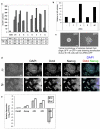
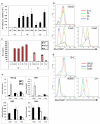
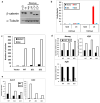
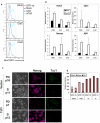
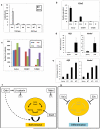
Comment in
-
Wnt: what's needed to maintain pluripotency?Nat Cell Biol. 2011 Sep 2;13(9):1024-6. doi: 10.1038/ncb2333. Nat Cell Biol. 2011. PMID: 21892143
References
-
- Sato N, Meijer L, Skaltsounis L, Greengard P, Brivanlou AH. Maintenance of pluripotency in human and mouse embryonic stem cells through activation of Wnt signaling by a pharmacological GSK-3-specific inhibitor. Nat Med. 2004;10:55–63. - PubMed
-
- Cartwright P, et al. LIF/STAT3 controls ES cell self-renewal and pluripotency by a Myc-dependent mechanism. Development. 2005;132:885–96. - PubMed
Publication types
MeSH terms
Substances
Grants and funding
LinkOut - more resources
Full Text Sources
Other Literature Sources
Molecular Biology Databases

